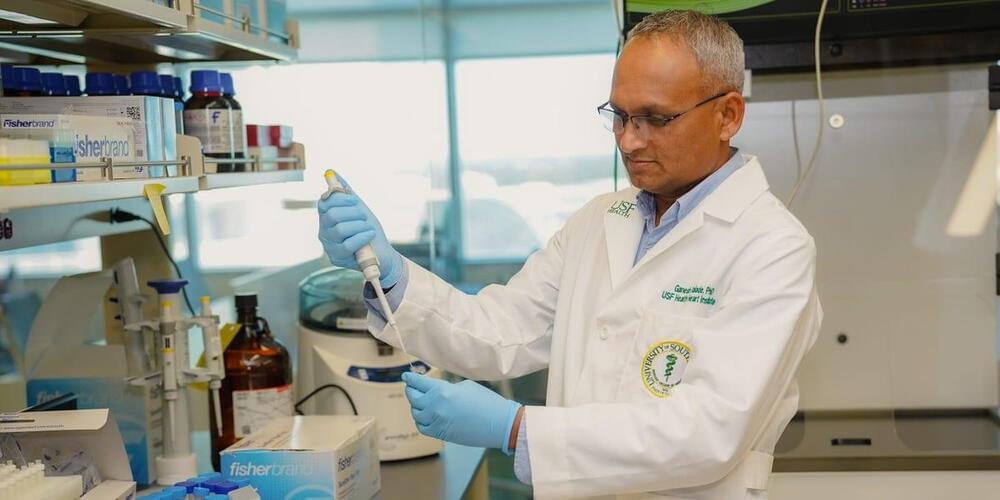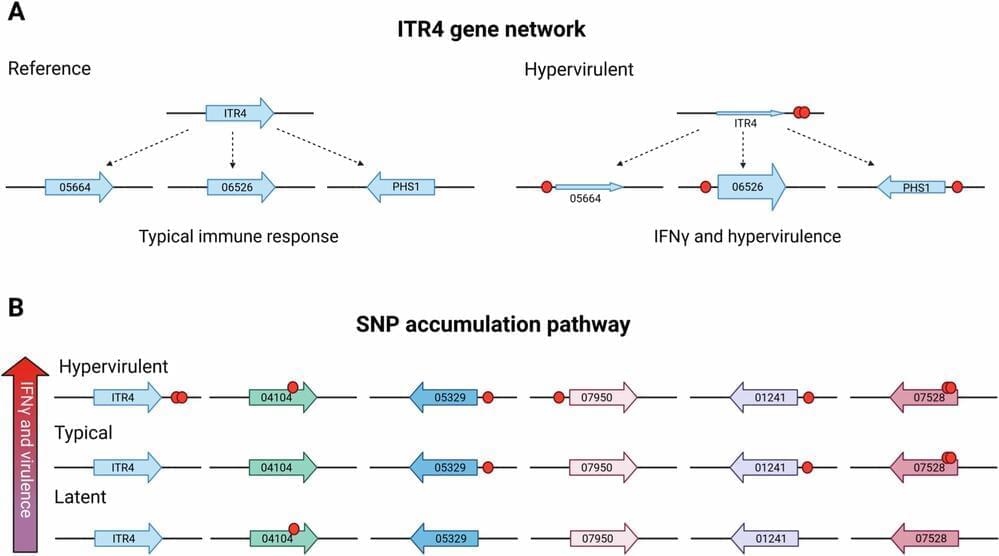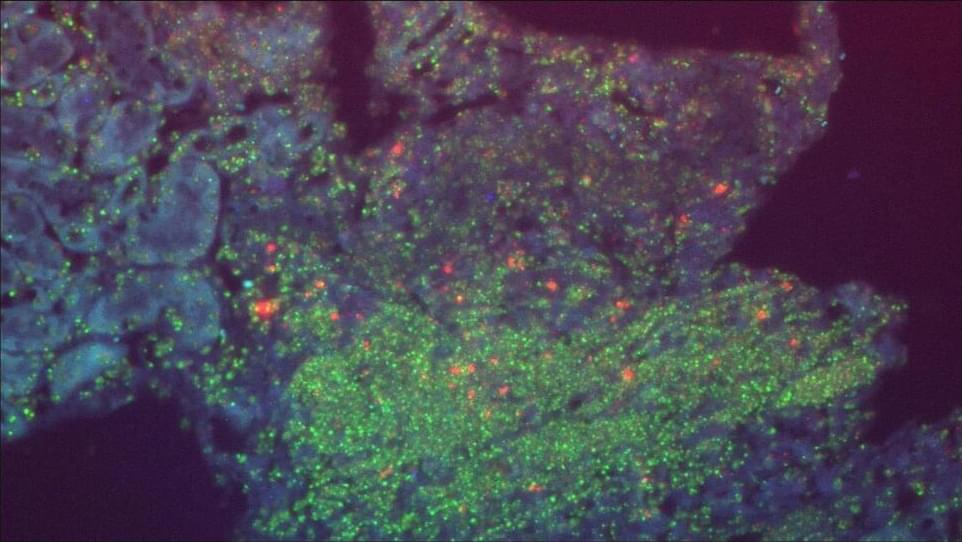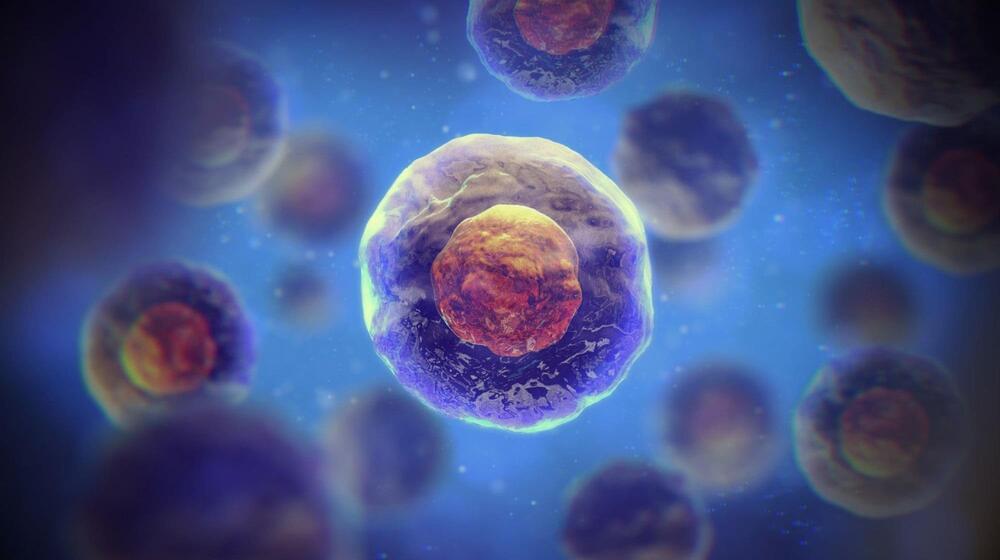Scientists have found a new link between diet and colon cancer risk that could change how we fight the disease with more targeted treatments.



Ultimately, the goal is to find ways to stop deadly disease caused by Cryptococcus neoformans from developing in humans and animals. But until that time, finding new and better ways to treat already existent disease and its symptoms is a high priority.
The laboratory of Kirsten Nielsen in the Center for One Health Research has taken a step toward improved treatment of Cryptococcus, completing a six-year study to examine the virulence of 38 clinical isolates from various strains of Cryptococcus. The results are published in Nature Communications.
“The question that we’ve been addressing is: Can we predict severe disease outcomes in patients?” said Nielsen, professor of microbiology and immunology in the Virginia-Maryland College of Veterinary Medicine. “If we can predict disease outcome, then we can treat patients better. In these studies, we identified not just the genes that allow Cryptococcus to cause disease, but also the gene alleles that allow it to cause more disease or less disease.”

Distance, Mass, and Advanced Observations
To refine the measurements of Cygnus X-1, astronomers used parallax—a technique that calculates stellar distances based on their apparent motion against the backdrop of distant stars as Earth orbits the Sun. Using the Very Long Baseline Array (VLBA), a network of 10 radio telescopes across the United States, researchers tracked the system’s full orbit over six days. They determined that the black hole lies about 7,200 light-years from Earth, significantly farther than the previous estimate of 6,000 light-years.
This updated distance means its blue supergiant companion star is also more massive and brighter than expected, with a mass 40 times that of the Sun. Combined with the black hole’s orbital period, these findings provided the recalculated mass of Cygnus X-1’s black hole.

For the first time, scientists have observed a collection of particles, also known as a quasiparticle, that’s massless when moving one direction but has mass in the other direction. The quasiparticle, called a semi-Dirac fermion, was first theorized 16 years ago, but was only recently spotted inside a crystal of semi-metal material called ZrSiS. The observation of the quasiparticle opens the door to future advances in a range of emerging technologies from batteries to sensors, according to the researchers.
The team, led by scientists at Penn State and Columbia University, recently published their discovery in the journal Physical Review X.
“This was totally unexpected,” said Yinming Shao, assistant professor of physics at Penn State and lead author on the paper. “We weren’t even looking for a semi-Dirac fermion when we started working with this material, but we were seeing signatures we didn’t understand—and it turns out we had made the first observation of these wild quasiparticles that sometimes move like they have mass and sometimes move like they have none.”


Cyanobacteria use an AM radio-like principle to coordinate cell division with circadian rhythms, encoding information through pulse amplitude modulation.
Cyanobacteria, an ancient group of photosynthetic bacteria, have been discovered to regulate their genes using the same physics principle used in AM radio transmission.
New research published in Current Biology has found that cyanobacteria use variations in the amplitude (strength) of a pulse to convey information in single cells. The finding sheds light on how biological rhythms work together to regulate cellular processes.

Precious few garments have been made of spider silk. In 2012, a cape and shawl made from natural spider silk were displayed at the Victoria and Albert Museum, where visitors learned that the garments were the result of a unique project that spanned eight years and involved the harvesting of silk from 1.2 million spiders. In 2019, a rather less painstaking project utilized fibroin, the protein found in natural spider silk, to fabricate an outerwear jacket, North Face’s Moon Parka. Starting with fibroin meant that silk could be sourced from genetically modified bacteria, which are easier to work with than spiders. Nonetheless, the Moon Parka, which takes its name from the word moonshot, was never meant to be mass produced. It was available by lottery for just a limited time.
Museum pieces and moonshots are hardly synonymous with “mass production.” Is there another way to generate spider silk–based textiles, one that has more commercial potential? Yes, according to Kraig Biocraft Laboratories, which uses transgenic silkworms to produce lines of recombinant spider silk. The company plans to produce up to 10 metric tons of spider silk in 2025. Production of actual spider silk lines on this scale would allow textile manufacturers to test the silk on their own equipment.
It’s not just textiles that may benefit. Recombinant spider silk’s tensile strength, weight, and durability make it attractive for myriad applications, including tissue scaffolds and sutures in the biomedical field, as well as textiles and ballistic materials.
Delivering Innovative, Compassionate And Accessible Patient Care — Robert Stone, CEO — City of Hope & Dr. Marcel van den Brink, MD, PhD, President, City of Hope Comprehensive Cancer Center.
Robert Stone is the CEO of City of Hope (https://www.cityofhope.org/robert-stone), a premier cancer research and treatment center dedicated to innovation in biomedical science and the delivery of compassionate, world-class patient care. A seasoned health care executive, he has served in a number of strategic decision-making roles since he joined City of Hope in 1996, culminating with his appointment as president in 2012, CEO in 2014, and as the Helen and Morgan Chu Chief Executive Officer Distinguished Chair in 2021.
Mr. Stone has J.D., University of Chicago Law School, Chicago, IL.
Mr. Stone’s strategic acumen, empathy and visionary leadership have driven City of Hope’s rapid evolution.
As an independent institution dedicated to advancing the fight against cancer and diabetes, City of Hope is accelerating opportunities for high-impact discovery and ensuring that patients around the world have access to the most advanced therapies. Recent examples include a groundbreaking alliance in precision medicine with the Translational Genomics Research Institute (TGen), a leader in genomic analysis and bioinformatics; leadership in CAR T cell therapy research and therapy; and an innovative program to offer cancer support services to the employees of some of American’s largest employers, regardless of geography.

A new UC Davis Health study has uncovered how Salmonella bacteria, a major cause of food poisoning, can invade the gut even when protective bacteria are present. The research, published in the Proceedings of the National Academy of Sciences, explains how the pathogen tricks the gut environment to escape the body’s natural defenses.
The digestive system is home to trillions of bacteria, many of which produce short-chain fatty acids (SCFAs) that help fight harmful pathogens. But Salmonella manages to grow and spread in the gut, even though these protective compounds are present. The study asks: How does Salmonella get around this defense?
“We knew that Salmonella invades the small intestine, although it is not its primary site of replication. The colon is,” said the lead author of the study Andreas Bäumler is a UC Davis distinguished professor and vice chair of research in the Department of Medical Microbiology and Immunology.
Learn more about artificial intelligence on Brilliant! First 30 days are free and 20% off the annual premium subscription when you use our link ➜ https://brilliant.org/sabine.
Scientific literature is growing rapidly, meaning scientists are increasingly unable to keep up with all of the latest developments in research. AI large language models, though, can read and “digest” information much more quickly than their human counterparts, making them the perfect tools to conduct massive literature reviews. Recent research shows they’re also very accurate at predicting the results of studies that they’ve never read before. Let’s take a look.
Paper: https://www.nature.com/articles/s4156…
🤓 Check out my new quiz app ➜ http://quizwithit.com/
💌 Support me on Donorbox ➜ https://donorbox.org/swtg.
📝 Transcripts and written news on Substack ➜ https://sciencewtg.substack.com/
👉 Transcript with links to references on Patreon ➜ / sabine.
📩 Free weekly science newsletter ➜ https://sabinehossenfelder.com/newsle…
👂 Audio only podcast ➜ https://open.spotify.com/show/0MkNfXl…
🔗 Join this channel to get access to perks ➜
/ @sabinehossenfelder.
🖼️ On instagram ➜ / sciencewtg.
#science #sciencenews #ai